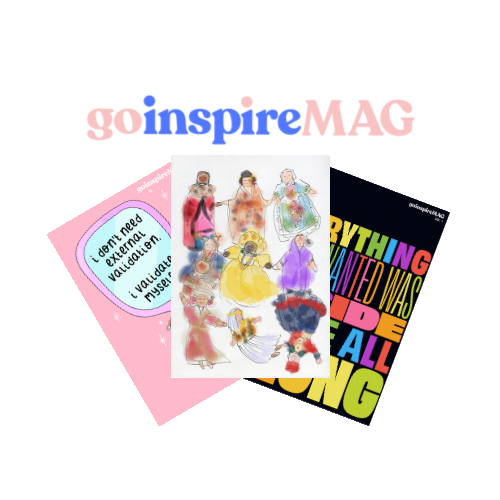Interview: Polly Neate
- Go Inspire Magazine

- Jul 19, 2022
- 4 min read
Updated: Aug 18, 2023
Formally working for Action for Children and Women's Aid, Polly joined Shelter in 2017 in the role of Chief Executive. Taking some time to speak to us away from her work at one of the biggest UK homeless charities, GoInspire wanted to get to know Polly and learn about what pushed her into her years of charity work across the UK.
GI: Tell me about your current role and why you are passionate about it.
PN: I’m chief executive of Shelter, the charity that helps people who find themselves victims of the national emergency our housing crisis has become, either because they are homeless or because the safety or security of their home is under threat. I’m passionate about it because I believe that without a safe and secure home, we can’t build our lives, fulfil our potential, grow and develop. A home is one of the most basic human needs, and I believe it should be a right. But it’s very far indeed from being a right in the UK.
GI: Tell me about the moment you knew this is what you wanted to spend your time doing?
PN: When I was a magazine editor, I had a moment when I realised that talking about how bad things are and analysing why things are going wrong wasn’t enough for me. I wanted to try and change things for the better. I was offered two really great new jobs in journalism, and when I realised my heart wasn’t in either of them, I started asking myself why, and found the answer. I was in my late 30s at the time, having spent many years as a journalist.
GI: Is there are particular moment or memory that stands out for you?
PN: One of the first ever features I wrote as a journalist was about families trapped in temporary accommodation. This was in 1990. I visited a family of five in one room in a horrible B&B. The whole room was beds, literally. No floor space. No privacy, no possibility of cleanliness or order, or any kind of normal life. All along the corridor were families in the same state. A communal kitchen at one end, a communal bathroom at the other. I joined Shelter in 2017 and since then I’ve met countless families in exactly the same situation. Every single one brings back that first family I met. And a sense of shame and anger that nothing has changed.
GI: Is there an achievement or contribution that you are most proud of?
PN: When I was at Women’s Aid we campaigned for coercive and controlling behaviour to be made a criminal offence. This was incredibly important because “coercive control” isn’t just a type of domestic abuse, it is the heart of it, and the most dangerous aspecto of it. We were successful and it’s now a crime, which opens the door to freedom for many women. I’m also really proud of the work we did with The Archers to raise awareness of what coercive control is. They ran a long storyline about the abuse suffered by Helen Archer and it was incredibly powerful, made a ton of headlines, and made people much more aware.
GI: Why? What attracted you to this cause?
PN: A safe home is everything.
GI: What inspires you? Who are your female icons?
PN: Feminists inspire me. The person I quote most often is Audre Lorde. The women I have met working at Shelter and Women’s Aid inspire me: they will never be famous but they struggle unbelievable odds. Celebrities don’t inspire me. I like watching lots of them, but inspire? Not really.
GI: What was the biggest challenge you were facing?
PN: I’ve faced challenges in my life like everyone, but I’m an incredibly fortunate person.
GI: What do you think other people should know about this organization?
PN: Shelter believes everyone should have a safe home, in which they can build a life for them and their family. We work alongside people to find and keep a home. And we work with communities and campaign across society to bring the day closer when there’ll be a safe home for everyone.
GI: Are you a feminist? How do you see the role of women in charity and social work?
PN: Yes I am a feminist. Women have been at the forefront of helping others since charity and social work began, and we still are. Sometimes in roles like mine, but more often because it’s women who care for others, unpaid, unnoticed and often unrewarded.
GI: During your period at Womens Aid, you worked with lots of women from different backgrounds. What was your biggest lesson learned from this time?
PN: That domestic abuse is no respecter of wealth, culture, education.
GI: What do you think the future looks for women?
PN: We are not equal yet. Don’t let anyone tell you we are. Women are still turning ourselves inside out and upside down to do the right thing, look the right way, please everyone. Actually in many ways the pressures on my daughters’ generation are worse than when I was their ages (23 and 17). But they are more confident than we were, so I have faith and hope in them to change things.
Polly Neate was one of our first interviewees for the magazine, and we thank her for the opportunity to speak and shoot at her home/workplace.
More information on supporting Shelter, Women's Aid and Action for Children can be found by those links. Any contact information if you need help can also be found on these sites.
.png)




_edited.jpg)





Comments